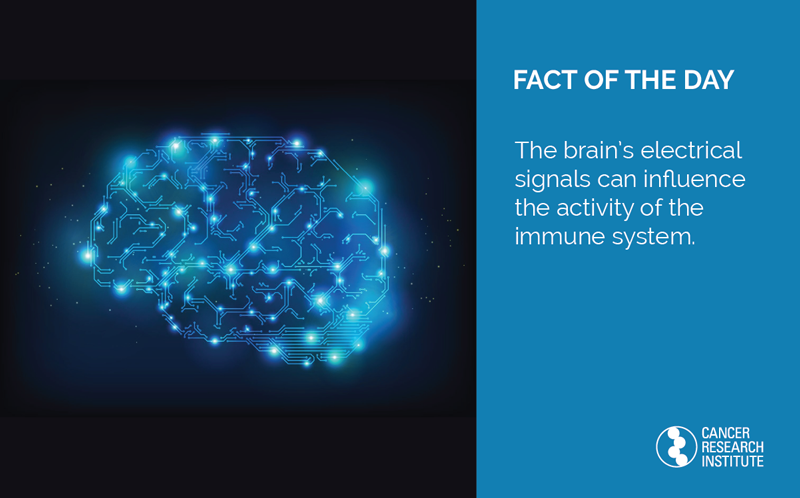
The brain's electrical signals can influence the activity of the immune system.
Did you know that your brain can communicate with your immune cells via its electrical signals?
One way the brain does so is through the vagus nerve, and vagus nerve stimulation (VNS) has been used to treat epilepsy and depression for over a decade now. More recently, VNS has shown the ability to reduce harmful inflammation associated with autoimmune disorders, and has provided benefits for patients with rheumatoid arthritis and Crohn’s disease through clinical trials.
The mechanism behind this appears to be a result of electrical impulses influencing the activity of T cells in the spleen. In short, VNS causes nerves in the spleen to release noradrenaline, which acts on T cells. Then, after noradrenaline stimulation, these T cells produce acetylcholine, which in turn acts on macrophages, causing them to produce less of the pro-inflammatory molecule TNF-α.
While nerve stimulation approaches haven’t yet been used to treat cancer, as more is learned about how the nervous system communicates with the immune system, it’s possible that scientists will discover links with great potential to help cancer patients. In fact, last year the National Institutes of Health announced a $238 million project called SPARC (Stimulating Peripheral Activity to Relieve Conditions) which could pave the way for possible new immunotherapies that enhance the immune system’s ability to target and eliminate cancer cells.
Image credit: Creative Commons via Wikipedia.